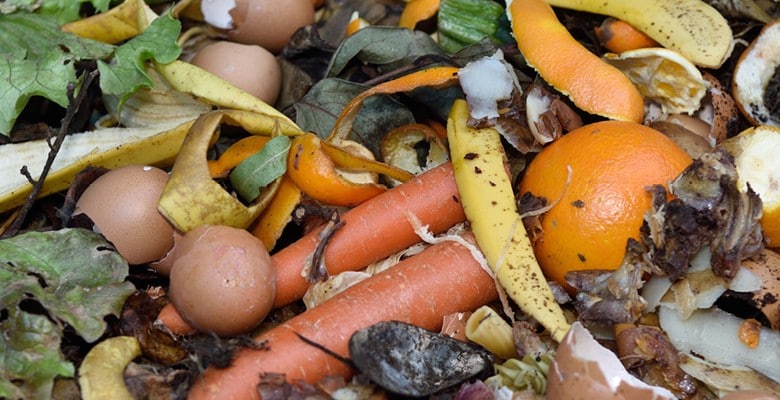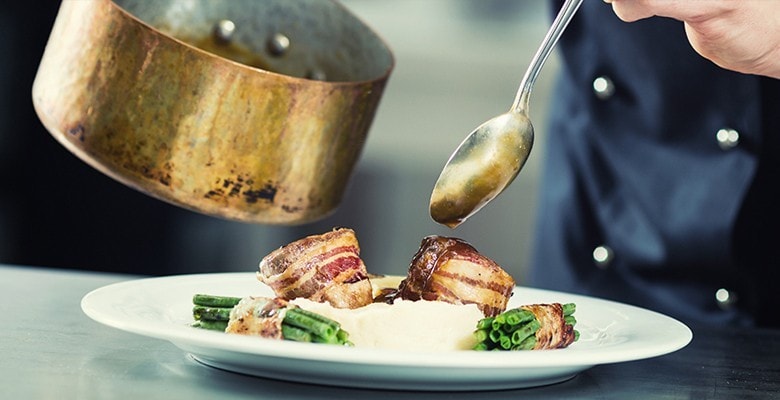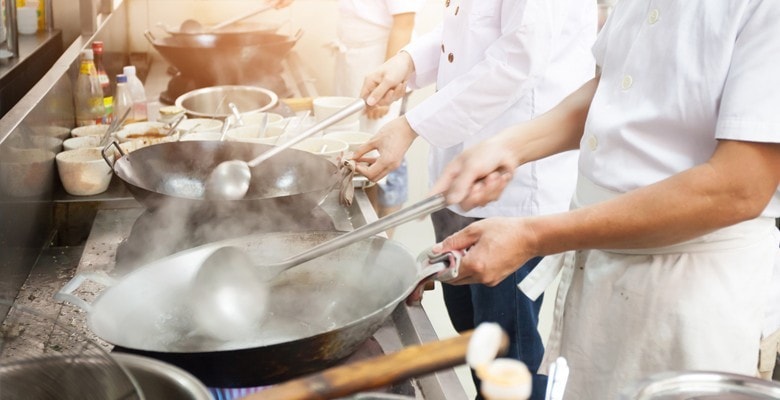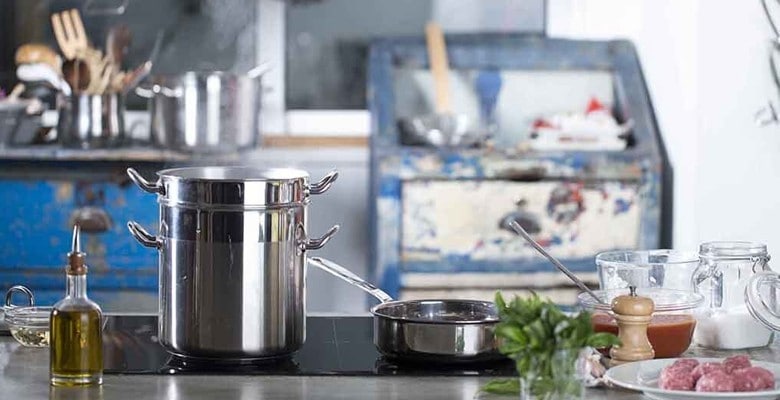Waste management, in any scenario, is an essential aspect of daily life. It is imperative in our homes, and that importance only escalates if it is a part of your business. Kitchen waste management, especially for those in the restaurant business, can make or break its existence. Thus, those in the food business take extra care to ensure that their establishments are always up to the standards for waste disposal in their kitchens.
In a more practical sense, not properly handling kitchen waste will cost your business money, and that is not where you want to be when running a business. Besides that, the government will be all over your business and may even cause revoking your license to operate. If you are not concerned about that, mishandled kitchen waste can cause significant harm to the environment. As you continue reading below, we go through some of the most compelling arguments about why waste management is essential in the restaurant business.
The gist of it is that you need proper waste disposal methods for your business to continue to operate, and it does not get any more important than that. For any restaurant to be in business, you just got to have a waste disposal system that is up to code. However, be that as it may, many business owners continue to operate with less than ideal waste disposal systems. While they may save a buck or two, the harm that comes to the environment, and not to mention their customers, can be significant.
Waste Management is Not a Mere Trend

Being aware enough to care about the environment when you are a restaurant owner is not just jumping on the bandwagon; it is, in reality, quite profitable. Letting your business run on eco-friendly terms doesn't mean you are a hippie; it just means that you care about the quality of the environment that you live in. Restaurant owners often only care about those food items that convert to a meal to be paid for by customers. Such a mindset makes proper handling of waste go to the back burner.
One concrete example of improper waste handling turning into a problem is oil. Waste oil in a wrong setting is simply chucked over to the drainage system where it sits and hardens and becomes a significant problem later on. Fat does not mix with water and, if not handled properly, can clog up pipes and make them burst, causing thousands of dollars of repair expenses down the line.
Restaurant owners who handle their waste correctly may or may not be ecologically concerned but save themselves from these hefty repair bills just by managing their waste products responsibly.
Proper Kitchen Waste Disposal Protects the Environment
When your establishment follows proper waste disposal procedures, you do your part in safeguarding the environment. Food waste that gets to a landfill produces large amounts of methane gas, one of the most damaging greenhouse gases. By not correctly disposing of your junk, you are contributing to climate change.
Kitchen Waste Management Protects Your Customers
The business of restaurants revolves around serving quality food to the customer. Safe and clean food goes hand in hand with proper sanitation standards, especially where the food is prepared. When your establishment cares about how the food is made and uses adequate food waste recycling, it translates to the customer's well being.

Proper Waste Disposal Protects You and Your Employees
Ensuring cleanliness in the workplace and proper kitchen waste disposal also translates to securing your employees' workplace and ensuring they have a safe place to engage in their activities. Employees are healthier and less prone to accidents, increasing productivity along the line. As the business owner, you are also secure about your business continuing to run without being in trouble with being up to code in sanitation standards.
How to Handle Kitchen Waste Management Efficiently
We know it is essential, but how does one go about managing their kitchen waste then? A restaurant's kitchen, especially a busy one, must be producing a lot of food waste, so how does one effectively even start? There are multiple ways to manage kitchen waste effectively, and we look closely at some of them as you continue reading below.
- Avoid buying items in bulk that your restaurant will not use in bulk. In short, avoid overstocking things in the first place. A common mistake when procuring items for a restaurant is when the supplier offers a good deal on some items in abundance. By all means, buy them if your place can store them properly, and by properly it means that you should have the capacity and the right conditions for the item. It could be tempting, but those may very well end up in the trash bin.
- Be as accurate as you possibly can with your inventory, which means that you have to know precisely what and how much stock you have at a given time. Being on top of this will allow you to ensure that food is not forgotten and that everything is used accordingly. Your food waste solutions will always start with a proper and accurate inventory.
- Donating leftovers to shelters and the local charity will take care of excess food and elevate your community status. Being famous in this way, especially if you are in the restaurant business, is always good for profits, even if you have all the intention of just being nice. The items you can donate cover extra or leftover food and ingredients relatively near their expiration dates.
- Tweak your menu to be as inclusive as possible; what this means is always to have customers' options regarding what they want to be included or excluded in their meals. For example, people may not always want to have fries with their burgers, and if you ask them in advance, the fries will not end up being unwanted and into the leftover tray.
- Composting food waste is always a great option for restaurant owners. As they become soil, you can give them away to local gardeners or plant enthusiasts in your area. With this, not only are you doing the environment some good, but your establishment will get the kind of attention that translates to paying customers.
- Pay attention to the expiration dates on all products that are delivered to your inventory. This will allow you to avoid the costly mistake of accepting ingredients that already have low shelf life remaining.

What You Can Do as a Restaurant Owner
Create a Dedicated Team for Waste Management
Depending on how large an outfit you run, you may create a team or assign a person to keep an eye out specifically on your waste disposal efforts. Not only will you be able to take a closer look as to what is going on at the back end of your restaurant business, but this activity will double as a meaningful employee engagement activity for your employees. This way, your restaurant can have a more thorough waste audit, and when you have this, you have more visibility as to what direction you are going to take.
Identifying the kinds of waste that your establishment produces can give you valuable insights into what areas you need to improve on. Proper restaurant waste audit will drive you to decide whether or not you need to contract or outsource your waste disposal to another company or do it yourself.
Another great benefit of a well-executed restaurant waste audit is that you will know what food items on the menu have the most leftover and act accordingly. With this information, you can then change or tweak your menu until the least amount of leftover exists. With this same information, you can also determine the correct portions to serve your customers, as more often than not, the portion may be too large.
Educate Your Staff
Start with your employees and train them to reduce the waste produced in the business day effectively. Just making sure that the employees are properly trained in food preparation will ensure that the minimum amount of food is wasted. Improper food preparation is a large contributor to food being wasted in restaurants across the world.
Even movements to and from the kitchen have a role in reducing waste in the restaurant world. For example, servers working in bars are trained to move circularly to avoid spilling drinks and minimize waste. In short, kitchen waste management always starts with the people that work in them.



Invest in good quality equipment
As the food preparation stage is most prone to wastage, it is a great idea to invest in good quality kitchen equipment. Small details like using the proper knife for peeling go a long way to ensure everything is prepared the way it should be. Details like this will add up and benefit your restaurant in the long run. Great quality food waste management equipment is no exception to this.
While some restaurants target being a zero-waste restaurant, reality steps in and makes it almost impossible to do so. Just the act of having that conscious effort to manage waste properly can do wonders for your business, your employees, customers, and most of the environment. When your employees see the restaurant as having that mindset to help out in cleaning the environment, the prouder they would be to be part of that establishment, and for sure, the community will notice.






















